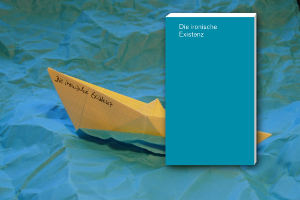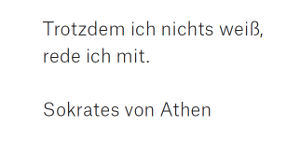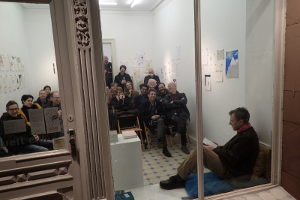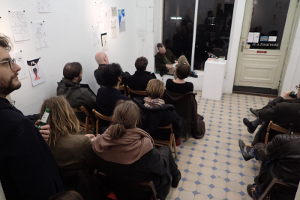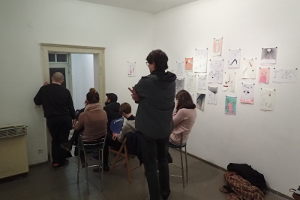(english version)Die totale Überwachung macht die ganze Welt zum Lager. So wird Flucht zur paradigmatischen Form des Seins. Ihr Symbol ist das Boot – als letztem universellen Begriff.
In seinem Text zeichnet der Autor den Weg nach von den ersten Ablösungen der Begriffe vom menschlichen Körper bis zur Machtübernahme der Zeichen über ebendiesen Körper. Von den ersten Simulationen der Welt in Pirschzeichen und Höhlenbild bis zur Welt als nur noch Simulation in den bildergenerierenden Algorithmen.
Verantwortung, das war einmal das Echo unserer in die Zukunft hineingerufenen Hoffnung. Wie aber kann ich noch leben, wenn alles vorausberechnet ist und es folglich nichts mehr zu hoffen gibt? Wie kann ich noch menschlich sein, wenn das totale Wissen mir jegliche Verantwortung nimmt? Wie kann ich sein, wenn mir Unsterblichkeit droht? – Hierauf versucht der Autor in seinem poetisch-philosophisch angelegten Versuch Antworten zu finden.
Er findet sie vor allem in der ironischen Existenz, die der globalisierten und digitalisierten Welt ihr „Trotzdem!“ entgegenhält. „Trotzdem ich nichts weiß, rede ich mit!“ ist der auf Sokrates zurückgehende Schlachtruf der Ironiker, die am Nichtwissen nicht verzweifeln, sondern es zum grundlosen Grund ihrer Menschlichkeit machen.
Die ironische Existenz ermöglicht die Flucht aus einer Hypermoralität, die zunehmend an ihren inneren Widersprüchen erstarrt. Denn die Theorien der Wahrheit halten nicht mehr, weder Wahrheit als Korrespondenz einer Aussage und eines Sachverhalts, noch Wahrheit als in sich widerspruchsfreies System von Aussagen, noch Wahrheit als Entbergung des Verborgenen. Der Autor fragt nicht: Wie kann ich ein guter Mensch sein? – sondern: Wie kann ich überhaupt noch ein Mensch sein?
Wenn die ironische Existenz die gelingende Form des Lebens ohne Grund ist, dann ist der Terror die gescheiterte. An einer intensiven Auseinandersetzung mit dem Phänomen der Grausamkeit im 21. Jahrhundert kommt der Text daher nicht vorbei. Die Grausamkeit richtet sich immer gegen das Terroir, die Behauptung eines Grundes. Aber kannst du, fragt der Autor den Terroristen, noch grausam sein, wenn ich dir einen Platz in meinem Boot anbiete?
Die Ironie unseres Schicksals liegt darin, dass nicht eine universelle Moral uns verbindet, sondern die nicht begründbare Behauptung einer individuellen Erfahrung. Wo uns die Ethik zu einem unmöglichen Urteil zwingt, erlaubt uns die Ästhetik das mögliche. Unter dem deterministischen Regime der Algorithmen wird die Kunst so zur großen Ermöglicherin.
Bleibt die Frage des Gelingens der eigenen Flucht. Der Autor behandelt sie mithilfe Arno Schmidts, Giwi Margwelaschwilis und eines kuriosen Fundstückes. Jede Erzählung, so der Befund, handelt von einer Flucht. Literatur ist Flucht und lebt von Flucht. Wir brauchen Bücher wie Boote.
Buchvorstelllung und Veröffentlichungsfeier Freitag, 28. Februar, 19:00 Uhr
www.matthias-gronemeyer.de
